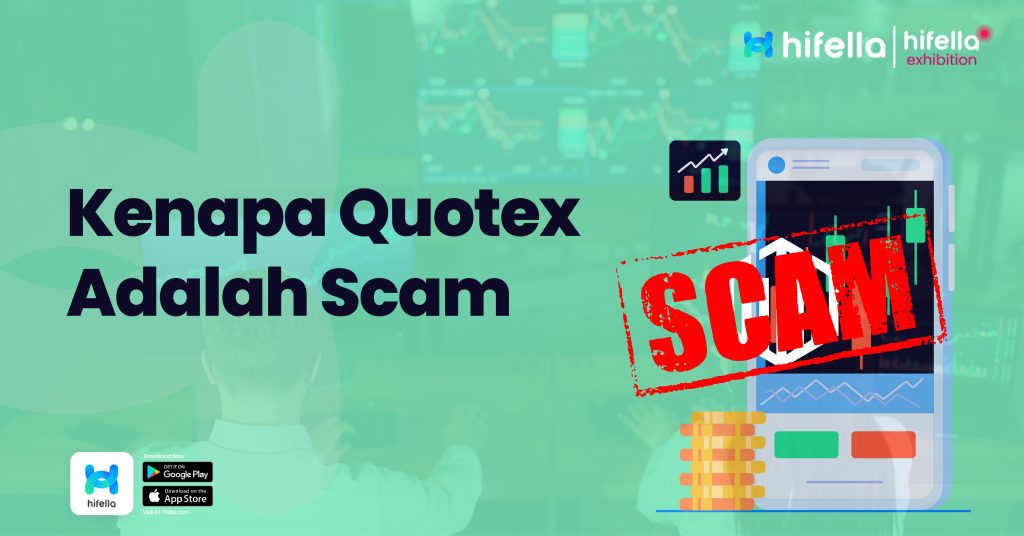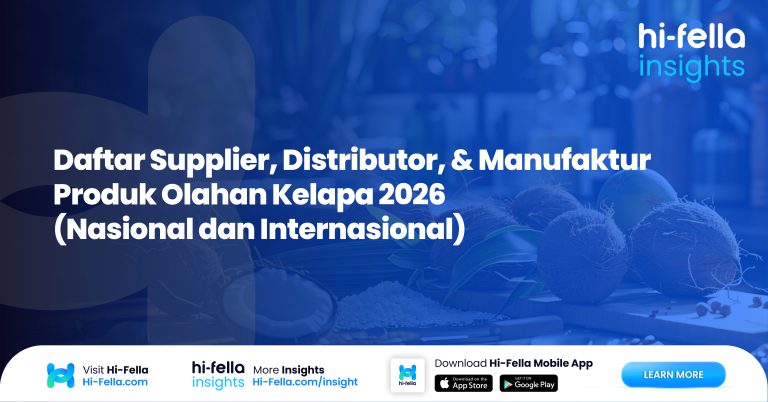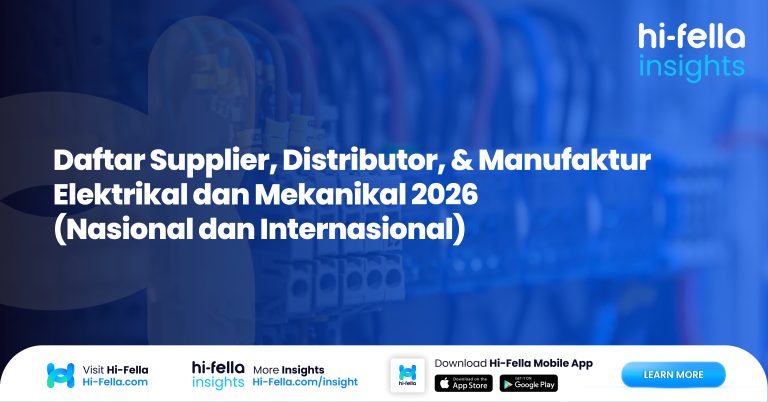Saat ini, dunia trading online semakin ramai dengan berbagai platform yang menawarkan kemudahan dan potensi keuntungan besar. Di antara banyaknya pilihan, satu nama yang sering muncul adalah Quotex. Quotex adalah platform yang menarik perhatian banyak orang, terutama mereka yang baru terjun ke dunia trading.
Namun, popularitas yang pesat sering kali menimbulkan berbagai pertanyaan dan kekhawatiran. Apakah platform ini benar-benar aman dan tepercaya? Atau ada risiko yang perlu diwaspadai?
Untuk memberikan gambaran yang lebih jelas, artikel ini akan membahas apa itu Quotex, alasan di balik popularitasnya, dan tanda-tanda penting yang perlu diperhatikan saat memilih platform trading.
Dengan informasi yang tepat, Anda dapat membuat keputusan yang lebih bijak dan melindungi investasi Anda dari potensi risiko. Mari kita mulai dengan mengupas lebih dalam tentang Quotex dan fakta-fakta di balik popularitasnya!
Apa Itu Quotex dan Mengapa Platform Ini Semakin Populer?

Sumber: Adobe Stock
Quotex adalah platform trading online yang menawarkan berbagai instrumen keuangan seperti forex, cryptocurrency, saham, dan komoditas.
Dalam beberapa tahun terakhir, Quotex menjadi populer di kalangan trader, terutama mereka yang mencari cara mudah untuk memulai trading tanpa harus melalui proses yang rumit.
Salah satu alasan utama mengapa platform ini begitu menarik adalah user interface atau tampilan antarmuka pengguna yang sederhana dan mudah dipahami, sehingga banyak pemula merasa nyaman untuk mencoba trading di sini.
Namun, seiring dengan popularitasnya, muncul berbagai pertanyaan mengenai keamanan dan kredibilitas Quotex. Apakah Quotex adalah platform ini benar-benar bisa dipercaya, atau ada potensi risiko yang perlu diwaspadai oleh para pengguna?
Tanda-Tanda Platform Trading yang Tidak Terpercaya
Ketika Anda memutuskan untuk menggunakan platform trading online, penting untuk mengenali tanda-tanda yang mungkin menunjukkan bahwa platform tersebut tidak dapat dipercaya. Beberapa ciri khas dari platform yang tidak terpercaya termasuk:
- Kurangnya Regulasi
Platform trading yang tepercaya biasanya diatur oleh badan pengawas keuangan yang resmi, seperti FCA di Inggris atau ASIC di Australia. Namun, jika platform tersebut tidak menunjukkan bukti regulasi yang jelas, ini bisa menjadi tanda peringatan.
- Testimoni yang Meragukan
Platform yang tidak tepercaya sering kali mempublikasikan ulasan dan testimoni yang terlalu positif dan terlihat tidak realistis. Berhati-hatilah jika Anda menemukan banyak ulasan yang tampak terlalu bagus untuk menjadi kenyataan.
- Proses Penarikan Dana yang Sulit
Salah satu tanda jelas dari platform yang bermasalah adalah kesulitan dalam menarik dana. Jika banyak pengguna melaporkan penundaan atau penolakan dalam penarikan dana, ini adalah indikasi serius bahwa ada masalah dengan platform tersebut.
- Promosi Bonus yang Berlebihan
Bonus besar yang ditawarkan oleh platform bisa menjadi jebakan. Banyak platform yang tidak tepercaya menggunakan bonus untuk menarik pengguna, namun sering kali terdapat syarat dan ketentuan yang sangat sulit dipenuhi.
Mengapa Quotex adalah Platform Berisiko? Ulasan dan Bukti

Sumber: Liputan6
Meskipun Quotex adalah platform yang populer, beberapa pengguna telah melaporkan pengalaman negatif yang mereka alami. Berikut adalah beberapa alasan mengapa beberapa pihak menganggap Quotex sebagai platform yang berisiko:
- Kurangnya Transparansi
Salah satu keluhan utama yang muncul adalah minimnya informasi tentang siapa yang mengoperasikan Quotex dan bagaimana platform ini diatur.
Banyak pengguna merasa bahwa transparansi adalah kunci untuk merasa aman saat melakukan trading, dan kurangnya transparansi ini menimbulkan kekhawatiran.
- Masalah Penarikan Dana
Beberapa pengguna melaporkan bahwa mereka mengalami kesulitan saat mencoba menarik dana mereka dari akun Quotex. Ini termasuk penundaan yang tidak dijelaskan dan bahkan penolakan tanpa alasan yang jelas.
Pengalaman seperti ini sangat mengganggu dan membuat banyak orang mempertanyakan keamanan platform ini.
- Regulasi yang Tidak Jelas
Meskipun Quotex menyatakan bahwa mereka beroperasi di bawah regulasi tertentu, banyak pengguna yang merasa tidak ada bukti kuat mengenai hal ini.
Tanpa regulasi yang jelas dari otoritas keuangan yang diakui, risiko bagi pengguna menjadi jauh lebih tinggi.
Risiko Menggunakan Platform Trading yang Tidak Terpercaya
Memilih platform trading yang salah dapat membawa risiko besar bagi Anda sebagai investor. Berikut adalah beberapa risiko utama yang mungkin Anda hadapi:
- Kehilangan Investasi
Jika platform yang Anda gunakan ternyata scam, Anda bisa kehilangan seluruh dana yang telah Anda investasikan. Banyak kasus di mana pengguna tidak dapat memulihkan dana mereka setelah platform tersebut tutup atau menghilang.
- Pencurian Data Pribadi
Platform yang tidak aman mungkin tidak memiliki perlindungan yang memadai terhadap data pribadi Anda. Ini dapat mengakibatkan pencurian identitas atau penyalahgunaan informasi pribadi Anda.
- Kerugian Psikologis
Selain kerugian finansial, menggunakan platform yang tidak dapat dipercaya juga dapat menyebabkan stres dan kekecewaan. Ketidakpastian mengenai keamanan dana Anda bisa membuat Anda merasa cemas dan tidak nyaman.
Cara Memilih Platform Trading yang Aman dan Tepercaya
Untuk menghindari risiko menggunakan platform yang tidak tepercaya seperti Quotex, penting untuk memilih platform yang benar-benar aman. Berikut adalah beberapa langkah yang dapat Anda ambil:
- Periksa Regulasi
Pastikan platform yang Anda pilih diatur oleh otoritas keuangan yang diakui. Ini memberikan jaminan bahwa platform tersebut memenuhi standar keamanan dan keandalan tertentu.
- Baca Ulasan dari Sumber Tepercaya
Selain membaca ulasan di situs platform, carilah ulasan dari sumber independen dan tepercaya. Ini dapat memberikan perspektif yang lebih objektif tentang reputasi platform tersebut.
- Uji Proses Penarikan
Sebelum melakukan deposit besar, cobalah menarik sebagian dana Anda untuk melihat bagaimana prosesnya. Platform yang tepercaya biasanya memproses penarikan dengan cepat dan tanpa hambatan.
- Hindari Bonus yang Terlalu Menggiurkan
Jika tawaran bonus terdengar terlalu bagus untuk menjadi kenyataan, mungkin memang demikian. Pelajari syarat dan ketentuan yang terkait dengan bonus untuk memastikan bahwa Anda tidak terjebak dalam skema yang merugikan.
Bergabung dengan Hi-Fella: Pilihan Aman untuk Perdagangan Internasional
Untuk memastikan keamanan dan kenyamanan dalam aktivitas trading dan investasi Anda, pertimbangkan untuk bergabung dengan Hi-Fella yaitu platform ekspor-impor global yang telah terbukti tepercaya.
Hi-Fella menawarkan fitur keamanan yang terjamin dan profesional untuk membantu Anda menghindari risiko yang sering ditemukan pada platform trading yang tidak terjamin.








